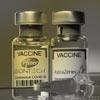Good News for Kidney Patients: Protein-Rich Diet May Lower Mortality Risk

News Synopsis
A new study suggests that a diet rich in protein may actually benefit people with chronic kidney disease (CKD), potentially reducing their risk of death. This finding challenges the long-held belief that protein intake should be restricted for CKD patients.
Protein's Potential Benefits for Older Adults with CKD
The research, conducted by Karolinska Institutet and Stockholm University in Sweden, focused on older adults (aged 60 and above) with mild or moderate CKD. The study, involving over 8,500 participants, followed them for mortality risk assessment from 2001 to 2024. The findings, published in JAMA Network Open, revealed a connection between higher protein intake (total, animal, and plant-based) and lower mortality rates in this specific group.
Explaining the Positive Impact
The researchers propose that protein supplementation might be beneficial due to its potential to elevate branched-chain amino acid levels, which can contribute to:
-
Increased Muscle Mass and Strength: Protein plays a crucial role in building and maintaining muscle tissue.
-
Slower Bone Loss and Higher Bone Density: Adequate protein intake helps support bone health.
-
Reduced Risk of Frailty: Protein deficiency can contribute to frailty, a condition characterized by weakness and vulnerability.
-
Improved Cardiovascular Function and Recovery: Protein may play a role in promoting heart health and aiding recovery from illness and injuries.
These potential benefits could explain the observed lower mortality risk in participants with moderate protein intake.
Addressing Protein Deficiency Concerns
The study also highlights the potential dangers of protein deficiency in older adults, citing risks like:
-
Weakened Muscles and Skeleton: Lack of protein can lead to muscle wasting and bone loss.
-
Compromised Immune Function: Protein is essential for a healthy immune system.
Social Media Response: Optimum Protein Intake Safe for Kidneys
Dr. Sudhir Kumar, a neurologist at Indraprastha Apollo Hospitals in Hyderabad, India, took to social media platform X.com to address the concerns surrounding protein and kidney health. He emphasized that a well-balanced diet rich in protein is unlikely to harm healthy kidneys. He recommends a daily intake of around 1 gram of protein per kilogram of body weight for healthy individuals, acknowledging that protein needs can vary based on activity levels and existing health conditions. He advises consulting a nutritionist and physician for personalized dietary advice, particularly if you have CKD or other health concerns.
Conclusion:
The recent study underscores the potential benefits of a protein-rich diet for individuals with chronic kidney disease (CKD), particularly older adults with mild to moderate forms of the condition. The findings suggest that increasing protein intake can significantly reduce mortality risk, improve muscle mass and strength, and enhance overall health outcomes.
Given the global prevalence of CKD and the substantial impact on affected individuals' lives, these insights offer a valuable perspective on dietary management. While the study emphasizes the advantages of protein consumption, it also highlights the importance of maintaining an optimal balance. Protein intake should be tailored to individual health needs and discussed with healthcare professionals to ensure safety and effectiveness.
As Dr. Sudhir Kumar noted, a diet rich in proteins is generally safe for kidney health when consumed in appropriate amounts. This revelation provides a proactive approach for CKD patients and underscores the need for personalized dietary planning to optimize health and improve quality of life.
You May Like









